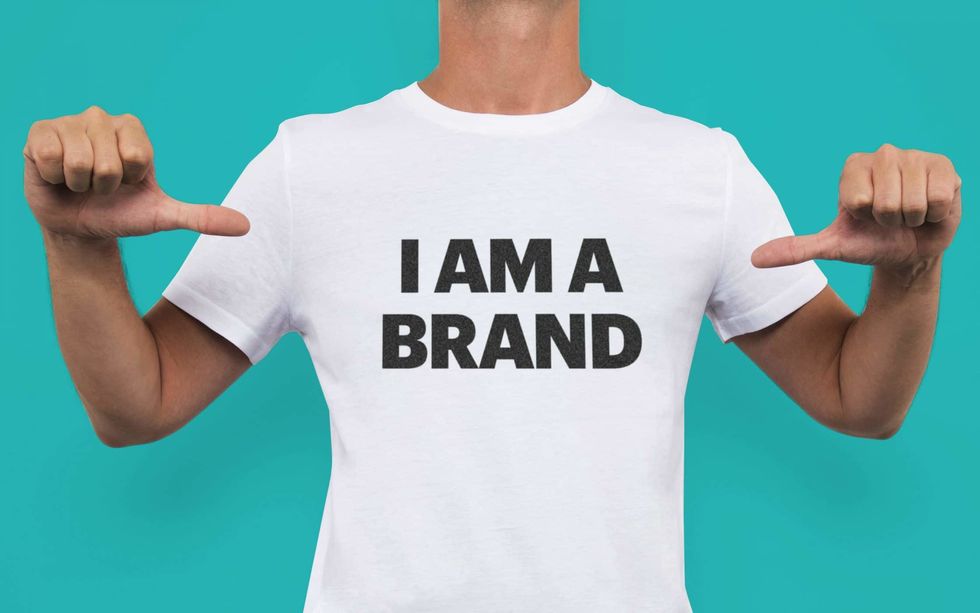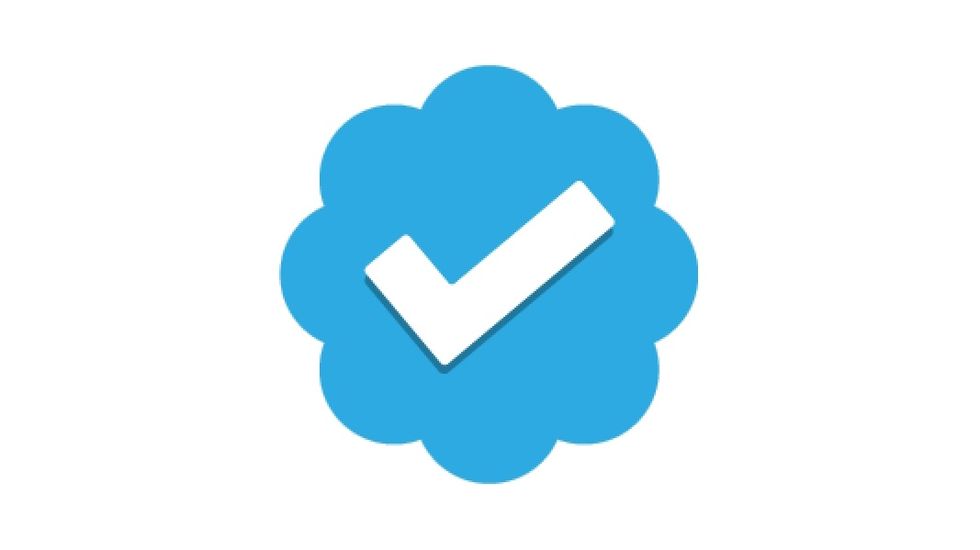
Internet writers truly are vultures.
If you’ve ever wondered why the vast majority of articles on every trending topic seem like clickbaity hot takes, that’s because Internet writing is frequently a race to publication. Working as an entertainment writer on the Internet, I spend a good chunk of my day scrolling through Twitter feeds. Trending hashtags are a hotbed for article ideas, and jumping on the right topic at just the right time can land you a top spot on the Google rankings for a popular search term.
But the more time you spend trend-hunting on Twitter, the more you start to notice trends within the trends. For instance, the top comments on almost any political topic tend to belong to the same hundred or so Twitter-verified Blue Check Marks (those being the people on Twitter deemed important enough to receive the coveted symbol next to their name). The same can be said for almost any topical niche. Sometimes these Blue Check Marks are celebrities, but more often than not, they’re unfamiliar names. A surprising number of them, I’ve come to learn, are other writers. Podcasters, too.
When most people see a Blue Check Mark on Twitter, they most likely associate the account with a person of import. This is, of course, by design; Blue Check Marks literally make chosen people stand out from the rest. But after reading through countless Blue Checkmarked tweets, I’m not sure if Blue Check Marks are really people at all. Rather, they’re projections of people––curated “Personal Brands” that aren’t interested in having conversations, so much as shouting to be the loudest voice with the most likes and retweets. The result is an overall degradation of public discourse, with nuance and genuine attempts at understanding taking a backseat to quippy barbs and platitudes from your favorite personality (who, in reality, likely lives in fear of upsetting their fanbase and damaging their “brand”).
Branding Yourself

“Personal branding” is the practice of turning your own life, personality, and online presence into a “brand.” The idea is that if you market yourself like a brand in a specific niche, then people will view you as a “thought leader” in the same way that they view consumer brands as an authority within consumer niches. So whereas a loyal Nintendo fan might buy whatever new game Nintendo releases, a loyalist of your personal brand might always download your music or watch your YouTube video or even read your latest article on why the Royal Family, the entire Super Smash Bros. community, and Craig––the second and worst bully you ever had––should be eternally canceled.
From a marketing standpoint, personal branding makes a ton of sense, and a quick search online will provide countless pieces of literature on how, exactly, to turn your social media presence into a career-building tool. As a result, it’s impossible to apply for a job within the media industry without being asked to supply links to your social media profiles. In a Forbes article titled “10 Golden Rules of Personal Branding,” media strategist Goldie Chan (who bills herself as the “Oprah of LinkedIn”) provides detailed instruction:
“1. Have a focus,” reads the first bullet. “Keeping your message focused for your target demographic will make it that much easier to both create content around your personal brand and have others define you.” And then comes step two: “2. Be genuine.”
But how does one both curate themselves online, boiling their identity down to a specific focus for a targeted demographic, while also staying “genuine?” Curating yourself for the Internet and being anything close to genuine feel deeply contradictory.
Subsequent steps only grow more depressing. Step eight, “Live your brand,” includes a quote from Tim Salu, a guy who helps college students build personal brands: “Your personal brand should follow you everywhere you go. It needs to be an authentic manifestation of who you are and amplify what you believe.” Then there’s step nine, “Let other people tell your story,” which notes, “The best PR is by word of mouth. Creating a personal brand in the public sphere is no exception to this rule.” Finally, step ten instructs us to “Leave a legacy,” posing the question: “What are the keywords and actions that you want to be known for?”
As a whole, this list is deeply troubling. Human beings are not “brands,” and the human experience should not be brandable. People are deep, complex creatures, and the practice of “personal branding” is a form of dehumanization that could only be possible through late-stage capitalism. By relegating our identities to curated “brands” for the purpose of marketing, clout, and career advancement, we’re robbing ourselves of the very complexities that make us human.
Blue Check Marks as Social Capital

All of this is to say that social media no longer revolves around fluffy status updates; nowadays, a lot of what’s said on social media matters in the real world, too. While one of Twitter’s earliest primary appeals was its ability to directly connect regular people with celebrities, over the years Twitter has grown into the Internet’s most prevalent ground for political organization. There’s no better evidence of this phenomenon than the fact that Donald Trump, the President of the United States, uses Twitter as his most direct line of communication with the American people––resulting in mass protestations just as fast as Trump can tweet.
As a result, people need to be more careful than ever about how they curate their public image. On one hand, bad Internet takes can have real consequences––social media posts can get you fired from your job or turn you into a social pariah. But on the other, a prominent social media presence can offer opportunities and social capital that might otherwise be impossible. The problem is that when social capital is directly tied to an Internet persona that thrives on pretty pictures and 280-character tweets, inauthenticity becomes a necessity.
Of course, this doesn’t just apply to Blue Check Mark Twitter accounts. Most people are not really, truly their authentic selves on social media. If anything, social media incentivizes lying by omission. We curate the reality of our lives, filtering through the negatives to provide a focused image for our target demographic.
Even when we do place the negatives on display, we’re targeting those toward an audience, too. For instance, any time an influencer talks about their mental illness on social media, it’s impossible to determine whether they’re genuinely opening up about a real-world struggle or attempting to expand their brand in order to be “thought leaders” on an increasingly popular topic of discussion––Or worse, doing both by intentionally commodifying their struggle.
My point in all of this isn’t to denounce Blue Check Marks. If anything, a lot of them provide great social benefits, using their platform to promote ideas they believe in, add nuance, and promote genuine empathy (like Patton Oswalt did when he paid for the medical expenses of a Twitter troll in need). But at the same time, I’m not convinced that most content creators go into creative fields because they want to put their lives on display. And if I’m right about that, it’s a sad reality that doing so seems like it’s become such an integral part of the job.
As someone who doesn’t like to use social media and hates to share information about my personal life in general, I almost certainly come up against barriers in my career as a professional writer. I will probably never boast a 10,000+ follower count. When a job application requests that I provide my social media, my choices are linking them to a sparse Twitter where I sometimes share articles I wrote and argue with people who say stupid things or leave the space blank. Except sometimes it’s required.
It’s obvious that my clickbaity hot takes are less likely to be read than the clickbaity hot takes of someone who has social media clout. More troublingly, genuine nuance and thoughtful insights are far less likely to spread within the larger social discourse when some edgelord’s’ intentional bad-faith take riles people up enough to share instead. But I’d rather miss out on certain job opportunities and risk my words not being read than turn my life into a “brand,” because I am not a brand. I’m a person, and I pursued a creative field because I wanted to add something meaningful to the larger cultural conversation, not because I wanted to commodify my own identity.
How come if I want to be a successful writer, I need to fabricate a personality for myself or, at best, curate my own personality to appeal to strangers on the Internet? Does every writer need to constantly boil their ideas down to 280 characters in order to stay relevant? Why can’t a creator’s portfolio––their art, their music, their articles––speak for itself?
If I were to build a truly authentic “Personal Brand,” my social media presence would revolve around constantly battling mild-to-severe depression, working around the constant roadblocks of high-functioning autism, collecting anime figures, and doing jack sh*t all weekend. That doesn’t mean I’m more “real” than anybody else––I think I’m quite average. It just means that a lot of the people that seem to lead the most interesting lives are probably doing mostly jack sh*t all weekend, too.
But social capital isn’t set in stone. While Twitter followers and Internet clout might equate to social capital now, once upon a time it could have been linked to joining your local book club or bowling team. Social capital isn’t dictated by corporations with marketing teams; social capital is dictated by us. We decide who we engage with and which voices we prop up. So even if you look at the modern discourse and feel nothing but a deep well of dread, take solace. Times change, and change starts with us.












